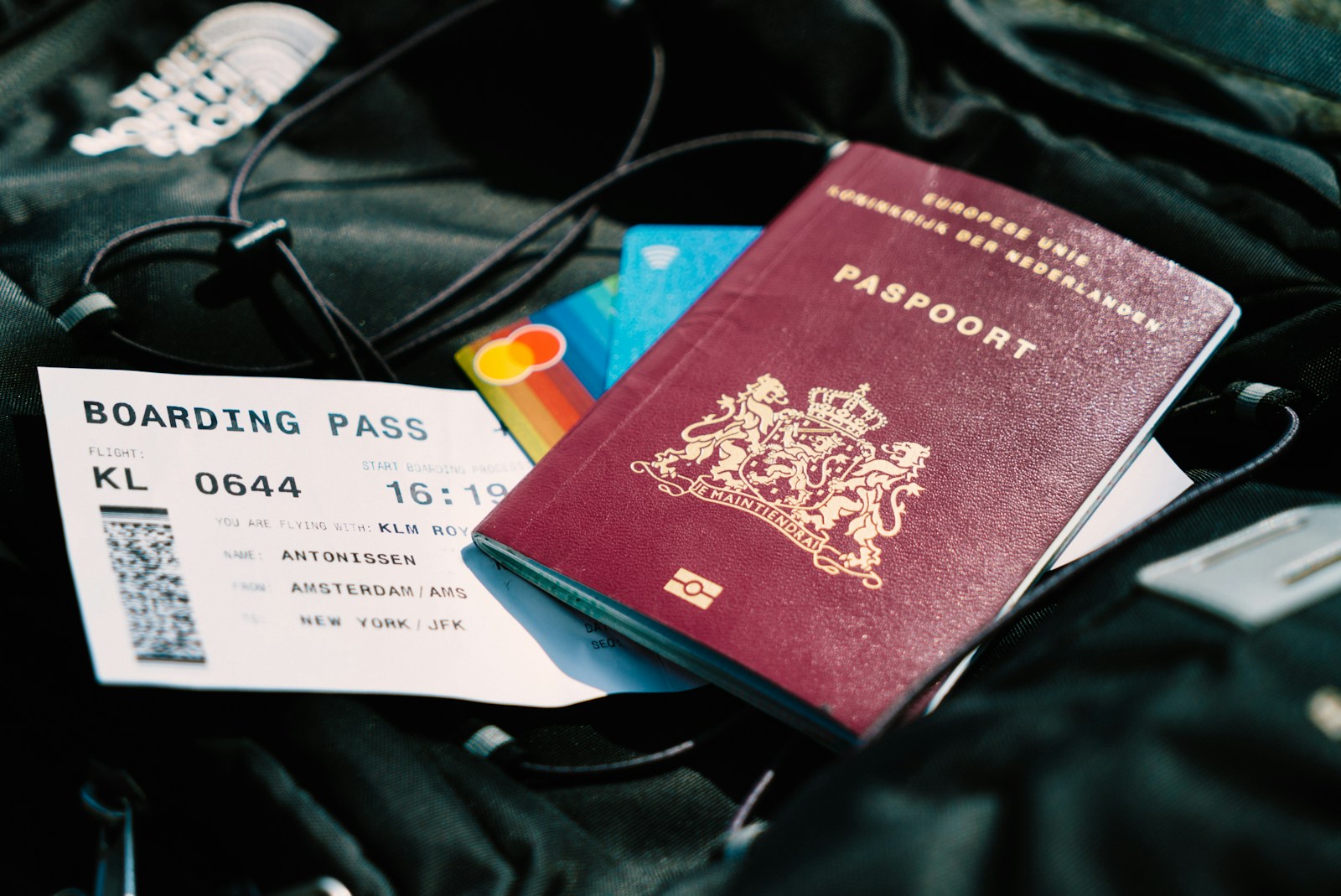Traveling internationally can be an exhilarating experience. But it’s not just about packing your bags and hopping on a plane. It’s crucial that you’re well-versed with the passport validity rules. Misunderstanding these rules could turn your dream vacation into a nightmare.
Different countries have varying passport validity requirements. Some require your passport to be valid for several months beyond your planned departure date. Others might not have such rules. It’s your responsibility to check these requirements before you travel.
Staying informed about passport validity rules will not only save you from last-minute hassles but also ensure a smoother journey. So, let’s delve into understanding these rules for a hassle-free travel experience.
Why Passport Validity Rules are Important
To embark on an international journey, you need more than just a valid passport. Not knowing or understanding the passport validity rules can lead to significant problems on your travel day. For instance, you could be denied boarding your flight or even entry to the country you’re visiting.
Remember, every country has its own set of rules when it comes to passport validity. For some countries, your passport needs to be valid for at least six months beyond your planned departure date. As a result, even if your passport hasn’t technically expired, it may not meet the country’s entry requirements.
Familiarizing yourself with these rules can prevent last-minute chaos and stress. Imagine the gut-wrenching feeling if you were turned away at the airport for something as avoidable as a passport validity issue.
Several travelers have faced such situations, forcing them to delay or even cancel their trips. This not only leads to a waste of your precious time but can also cause a substantial financial loss. Certain non-refundable components of your trip like airfare, hotel bookings, and tour reservations might not be recoverable.
Moreover, staying informed about the passport validity rules also helps you plan your passport renewal process better. With this information, you can time the renewal so that it’s convenient and does not interfere with your upcoming travel plans.
Apart from this, boundaries and restrictions are constantly evolving due to geopolitical changes and global events. For instance, a pandemic may alter entry requirements for a certain time period. By staying up-to-date with passport validity rules, you ensure to have the latest information and thereby increase your chances of a smooth, stress-free journey.
Educate yourself about passport validity rules. This proactive approach will prove to be a huge aid for you in your international travel plans. Remember, an ounce of prevention is worth a pound of cure. Equip yourself with all the necessary knowledge to avoid any potential travel disruptions.
Understanding Different Passport Validity Requirements
A key aspect in ensuring your planned travel isn’t disrupted is to understand the different passport validity requirements. Many countries require that your passport is valid for at least six months beyond your planned departure date. However, it’s not a universal rule.
For instance, countries in the European Union’s Schengen Area –– which includes 26 countries such as France, Germany, and Spain –– demand only that your passport is valid for the duration of your stay. On the other hand, countries like China and many in the Middle East require a passport to be valid for six months beyond your entry date.
That’s quite a distinction, isn’t it? So how exactly can you ensure you’re meeting the right passport validity requirements?
Keep Yourself Informed
Staying informed and doing your research is the first step. Here’s a brief breakdown of passport validity requirements for some popular destinations:
| Country | Passport Validity Requirement |
|---|---|
| France | Duration of stay |
| China | 6 months beyond entry |
| Indonesia | 6 months from entry |
| South Africa | 30 days beyond departure |
| Australia | Valid on entry and exit dates |
Check out the U.S. Department of State’s Country Information page or the embassy/consulate websites of the country you’re planning to visit for detailed and dependable information.
Getting Professional Advice
Travel agencies and professionals dealing with international travel regulations can offer valuable advice as well. Make sure you avail their services if you’re uncertain about any passport validity requirement. Dealing with uncertainties early on can save a lot of stress and potential expenses down the line.
Remember, understanding passport validity requirements is a task you can’t overlook if you’re aiming for a smooth, hassle-free journey. Your ticket to a seamless travel experience lies in your ability to grasp these rules and apply them effectively to your travel plans.
Countries with Strict Passport Validity Rules
While it’s easy to assume your passport is good to go if it’s valid on the day you enter a country, many nations have rules requiring your passport to be valid for three to six months beyond your departure date. Several countries are notably strict in their enforcement of these rules.
Here are some examples:
- China: A six-month validity rule applies to U.S. passport holders. Always check the visa requirements before planning your visit.
- Russia: While the general requirement for travelers to Russia is that their passport is valid for six months after their intended departure date, visa applications also require an additional two blank pages.
- Brazil: As one of the more rigid countries, Brazil requires a passport validity of at least six months beyond the planned date of departure, not just the date of entry.
- Spain and other Schengen Area countries: For U.S. passport holders, a three-month validity rule applies beyond your intended departure date from the Schengen Area. The rule is specific to the Schengen Area as a whole, not individual countries within it.
These are just examples. Many more countries enforce six-month passport validity rules. The best way to keep abreast of these requirements is by checking the U.S. Department of State’s Country Information page or the embassy or consulate websites of your intended destination.
Moreover, consulting travel professionals who deal with international travel regulations daily can save you stress. They are up-to-date on the latest rules and can help guide you through passport validity requirements and potential hitches.
Remember, to spend less time worrying about paperwork and more time enjoying your travels, you need to be aware of passport validity rules. Be smart, stay informed, and remain one step ahead.
Consequences of Not Complying with Passport Validity Rules
Now that you’re familiar with the diverse passport validity requirements of countries across the globe, it’s crucial to understand the repercussions of non-compliance. The outcome varies from one situation to another, ranging from minor inconveniences to devastating disruptions in your travel plan.
One of the most common hiccups you might face is denied boarding. Airlines are vigilant in interfacing with international travel regulations and often refuse to board travelers with insufficient passport validity. This may result in forfeiting the ticket price, or at the very least, stressful last-minute arrangements. More importantly, it could delay or cancel your journey entirely.
Imagine landing in a foreign country, only to be refused entry because your passport doesn’t meet the validity requirements. Some countries enforce strict border controls, sending travelers back or imposing hefty fines. Even transit through a country could be affected if the connecting flight lands in a location where your passport’s validity is not up to par.
In severe cases, you might face legal complications. Some countries may accuse you of immigration violations if you cannot produce a valid and acceptable passport, leading to potential legal consequences or even detention.
Nevertheless, prevention is better than cure. Staying one step ahead by knowing and respecting the passport validity rules of the countries you plan to visit will sidestep such unpleasantries. It’s essential to consistently check with authoritative sources like the U.S. Department of State’s Country Information page or the respective embassy/consulate websites before setting out on your journey. You might also want to consider seeking expert advice from reputable travel agencies or professionals well-versed in international travel regulations to guide you through this complex process.
As the journey continues, the following section will shed light on the specifics of passport validity for some of the most traveled countries. Thus, providing you with a more in-depth understanding and equipping you for potential future travels.
Tips for Ensuring Hassle-Free Travel with Passport Validity
Don’t underestimate the power of preparation, especially with international travel. Staying informed and prepared can save you from potential disruptions to your plans. Stick to the following tips for a smooth travel experience.
Stay Informed: It’s crucial to stay updated about the passport validity rules of the country you’re visiting. Check the U.S. Department of State’s Country Information page or the embassy/consulate websites of the destination country frequently. Regulations can change swiftly and you wouldn’t want to be caught off guard.
Plan Ahead: Delayed renewals can disrupt your travel plans. Ensure your passport is valid for at least six months beyond your planned stay at the destination. Countries like China, Russia, Brazil, and Spain adhere to strict passport validity rules and these should be observed closely.
Seek Professional Advice: Connect with professionals dealing with international travel regulations. Travel agencies or professionals can provide you with updated advice about possible changes to passport validity requirements. Remember that professional advice can never be overstated.
Keep Digital Copies: Always keep digital copies of your passport and other identification documents handy. If the worst happens and you lose your passport, these copies can expedite the replacement process.
Check for Visa Requirements: Some countries require a visa even if the vacation is short. Apply for a visa in advance if needed. Do not rely solely on the possibility of obtaining one upon arrival.
- Stay informed.
- Plan ahead.
- Seek professional advice.
- Keep digital copies.
- Check for visa requirements.
After understanding these tips the next section of this informative piece will provide in-depth information about practices followed by specific countries for better appreciation of passport validity rules around the globe.
Conclusion
You’ve learned the significance of staying in the loop with passport validity rules to ensure smooth international travel. It’s not just about having a passport, but making sure it meets the requirements of your destination country. Planning ahead and seeking professional advice can save you a lot of trouble. Always remember to keep digital copies of your documents and stay updated with visa requirements. Armed with this knowledge, you’re now better prepared for your next global adventure. Traveling is an enriching experience, and understanding passport validity rules is one step towards making it hassle-free.
Frequently Asked Questions
1. Why is understanding passport validity requirements important when traveling internationally?
Understanding these requirements is vital as some countries require your passport to be valid for several months beyond your return date.
2. What are some tips for ensuring hassle-free international travel?
To ensure a smooth trip, stay informed about passport validity rules, plan ahead, get professional advice, keep digital copies of your documents, and check visa requirements.
3. Can professional advice help in planning for international travel?
Yes. Professional advice can guide you on legal, health, and other crucial aspects that can impact your plans.
4. Why should I keep a digital copy of my important documents?
Keeping a digital copy of your documents, such as your passport, is recommended in case of loss or theft when abroad.
5. Does the article provide passport validity information for specific countries?
The article mentions that more in-depth information on passport validity for specific countries will be provided in the next section.


